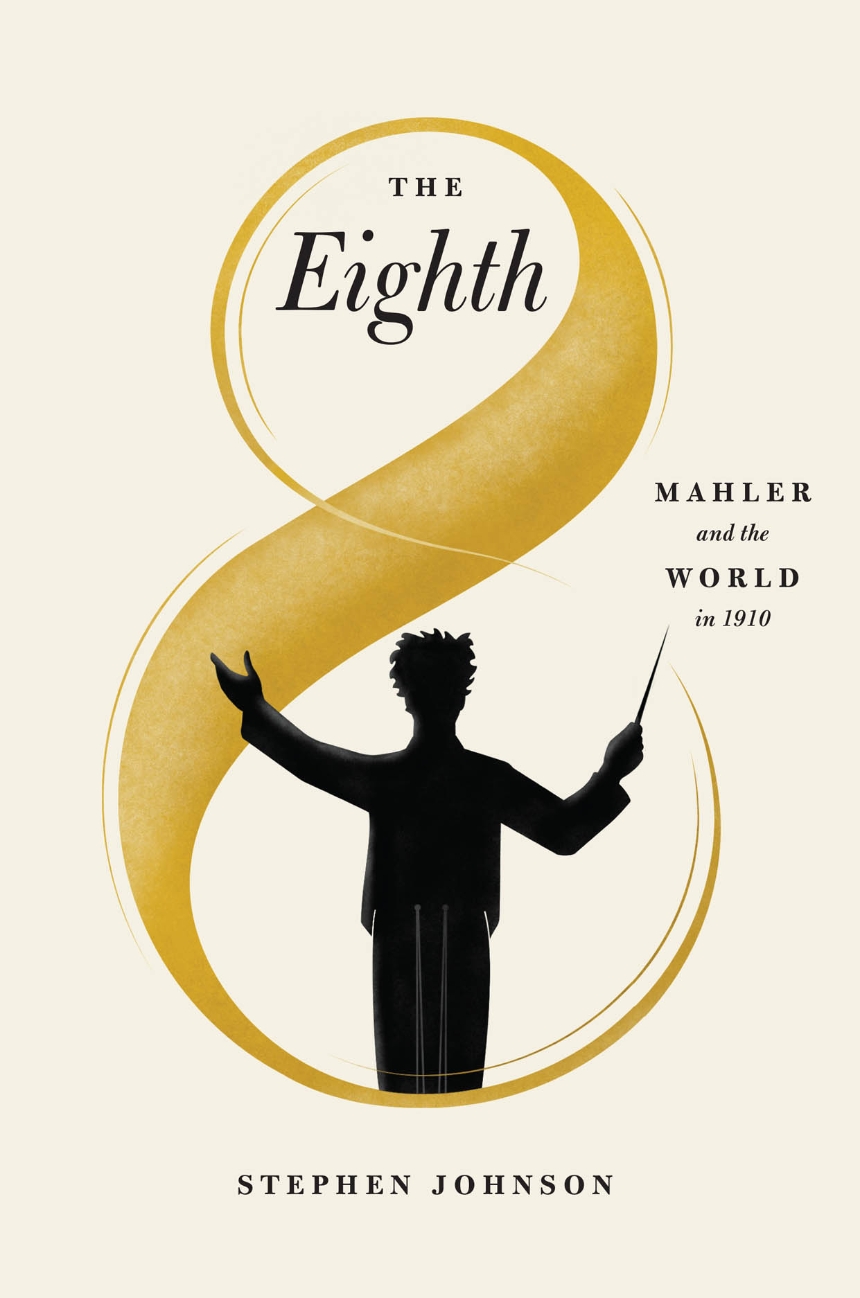The Eighth
Mahler and the World in 1910
September 12, 1910: The world premiere of Gustav Mahler’s Eighth Symphony and the artistic breakthrough for which the composer had yearned all his life. Munich’s new Musik Festhalle was filled to capacity on two successive evenings for the performances, which were received with rapturous applause. Representatives of many European royal houses were in attendance, along with an array of stars from the musical and literary world, including Thomas Mann and the young Arnold Schoenberg. Also present were Alma Mahler, the composer’s wife, and Alma’s longtime lover, the architect Walter Gropius. Knowledge of their relationship would precipitate an emotional crisis in Mahler that, compounded with his heart condition and the loss of his young daughter Maria, would lead to his premature death the next year.
In The Eighth, Stephen Johnson provides a masterful account of the symphony’s far-reaching consequences and its effect on composers, conductors, and writers of the time. The Eighth looks behind the scenes at the demanding one-week rehearsal period leading up to the premiere—something unheard of at the time—and provides fascinating insight into Mahler’s compositional habits, his busy life as a conductor, his philosophical and literary interests, and his personal and professional relationships. Johnson expertly contextualizes Mahler’s work among the prevailing attitudes and political climate of his age, considering the art, science, technology, and mass entertainment that informed the world in 1910. The Eighth is an absorbing history of a musical masterpiece and the troubled man who created it.
Reviews
Table of Contents
Introduction: The Arrival of the Queen of Heaven
1 Setting the Stage
2 ‘Arise, Light of the Senses’
3 Why Symphony?
Interlude—Behind the Scenes: Alma and Walter, August–September 1910
4 God or Demon?
5 Approaching the Inexpressible: Words and Music in Mahler’s Eighth Symphony
6 Questions of Identity
7 The Shadow Falls
8 ‘To Live for You, To Die for You’
Coda: 14 September 1910–18 May 1911
Notes
Acknowledgements
Index
